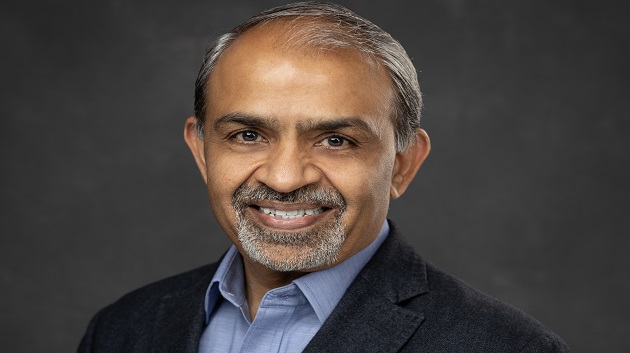Telecom
Protecting Assets in a Remote-first (and potentially Hostile) World

By: Chester Wizniewski, Field CTO Applied Research at Sophos
I live in a city center and the lunch hour certainly isn’t like it once was. While some people have returned to working in an office, it seems that the majority have not. Looking back, the pandemic will have been a turning point for many things around the world, and the rhythms of office-centered worklife will be something that will never return to the old ways.

With this increased flexibility employees are not just working from home behind consumer-grade Wi-Fi routers; they are also spending part of the day at the park or coffee shop, or perhaps even having a “working holiday.” Those in charge of protecting enterprise assets have to assume these endpoints are always in hostile territory.
Even before the pandemic, organizations working toward improving their security maturity were often trying to “push left.” What is pushing left? At its most basic level it means moving things closer to the start. It originates from software development where the stages of the development process are conceptualized from left to right, left being the beginning. In applied security we also use the term “pushing left,” but rather than referring to the software development process we are referring to the attack chain, which moves from reconnaissance on the left through action (exfiltration or other attacker goal) on the right.
For many years, the most comprehensive security strategies have involved defense in depth. The idea is that not all technologies are suitable for detecting a given threat type, so it is best to deploy them in layers. These layers often directly correspond to how far “left” something is in the attack chain. If you can detect something at the network border through your firewall, email, or web filters, you have contained the threat before it has any negative impact on operations.
Ideally you want to detect and block an attacker as far left as possible, i.e., as early as possible. Pushing detections left also alerts security analysts that an intrusion may be underway, initiating more focused threat hunting to anticipate gaps in defenses your attacker may be attempting to exploit.
For employees at the office, you can centralize control of these defenses and provide optimum protection. The question is, are you able to provide the same protection for remote workers regardless of their location? Can you monitor and respond to threats being detected on those assets when they are out of the office? As many have observed, this did not work as well as we would have liked when we all went into lockdown, many of us without a plan.
While there are still many benefits to monitoring the network when you have control of it, including reduced endpoint overhead and the ability to keep threats at a distance from sensitive assets, we need to ensure we can take as much of this protection as possible with us when we are out and about.
We must ensure not only that protection is optimized, but also that we don’t lose our ability to monitor, detect, and respond to attacks targeting these remote assets. Most organizations have moved to utilizing EDR/XDR solutions (or plan to in the very near future) , which is a great start, but not all solutions are comprehensive.
In the remote-work era, insufficiently protected remote users can encounter plenty of issues – malicious URLs and downloads, and network attacks, to name only the most mundane – that in the Before Times would have been handled by machines guarding the corporate “fort.” The biggest missing components when users are “outside the fort” are HTTPS filtering and web content inspection of the sort that is typically implemented within next-generation firewalls. When you add these technologies to pre-execution protection, behavioral detection, machine learning models, client firewalls, DLP, application control, and XDR, you are starting to look at a comprehensive stack of defenses for attackers to overcome – even if the endpoints themselves are now free-range.
For initiatives like zero trust network access (ZTNA) to be effective, we must not only wrap the applications we interact with, but we must also wrap the endpoints that connect to them. Simple checks like whether the OS is up-to-date and whether it has security software installed may be a good start, but not all protection is created equal.
With most devices being connected to the internet whenever they’re in use, we can leverage the power of the cloud to help provide ubiquitous protection and monitoring. Modern security solutions must assume the endpoint device or phone is in a hostile environment at all times. The old idea of inside and outside is not only outdated, it’s downright dangerous.
Telecom
WhatsApp to Start Showing more Adverts in Messaging App

WhatsApp is launching three new ad features in a global roll-out across the messaging app.

The Meta-owned platform said the new ads will not be shown in the same place as people’s private chats, nor will the contents of their messages – which are encrypted – be used to decide which ads to display.
WhatsApp will instead use the country, city and language of the user, as well as how they interact with other ads and which channels they follow, to drive suggested content.
But people who have chosen to link their WhatsApp account to Facebook or Instagram will see more personalised ads.
The new ad features will appear in a section called Updates, which is a separate tab at the bottom of the app.
WhatsApp claims to have 1.5 billion users globally.
Businesses with channels will be able to choose to promote ads in the Updates section to attract new followers, and also charge a subscription to access extra content.
WhatsApp will eventually take a 10% commission of that fee, and there may also be extra costs on top of that taken at the app store level depending on the size of the business.
Firms will also be able to advertise in the form of a status update, which looks similar to an Instagram story and will link through to start a chat if clicked on.
Social media expert Matt Navarra told reporter that Meta is “laying the foundation for WhatsApp to finally become a monetisable platform at scale”.
But “monetising the periphery” of WhatsApp, while keeping personal chats private, would not be without risk for the company, he added.
This could particularly be the case in markets like the UK and Europe, he said, where the app is viewed primarily as a messaging tool with less appetite for content feeds or adverts.
“Any perception that the app is becoming noisy or Facebook-ified will spark backlash,” he said.
How does WhatsApp make money?
‘Natural extension’
It’s no coincidence that the new features bring WhatsApp more in line with Meta’s other platforms Facebook and Instagram.
“Obviously there’s overlap,” said WhatsApp boss Will Cathcart.
“We have stories on Instagram and stories on WhatsApp, and we now have a way for businesses to promote themselves in both, and we think that’s a good thing.”
He said he believed the move was a “natural extension of messaging services” and not dissimilar to features of rival apps such as Snapchat and Telegram.
For Mr Navarra, it also reflects a wider shift in the social media landscape.
“The feed is dying, public sharing is down, people are retreating into DMs and Stories in small groups,” he said.
“Meta’s trying to turn WhatsApp into a platform without users realising it and if they move too fast or it starts to feel like another ad network, people might disengage or maybe worse, distrust the app.”
Telecom
Airtel Africa Reinforces Commitment to ESG Impact while Advancing Digital, Financial Inclusion Across 14 Markets

Airtel Africa, a provider of telecommunications and mobile money services across 14 African countries, has published its Sustainability Report 2025, reaffirming its corporate purpose of transforming lives by expanding access to essential digital services, supporting inclusive economic growth, and advancing environmental stewardship throughout its operations.

In 2024/25, Airtel Africa made significant progress in bridging the digital divide, advancing financial inclusion and supporting underserved communities through strategic investment in connectivity, people, and sustainable practices.
Airtel Africa’s chief executive officer Sunil Taldar said: “This year’s achievements, from connecting 2,176 schools through the UNICEF partnership to reaching 44.6 million Airtel Money customers with near-gender parity, prove that the power of technology is a catalyst for gender balance. At Airtel Africa, we believe to not only expanding networks but we’re also building bridges to education, financial security and sustainable growth for Africa’s next generation.”
Key ESG highlights:
- Providing underserved communities with access to reliable network and connectivity:
- 2% population coverage across 14 markets (up from 80.4% in 2023/24)
- 36,159 4G infrastructure sites, including more than 15,300 in rural areas.
- Continued investment of $670m in network expansion and modernisation to boost speed, coverage and capacity.
Airtel Africa is connecting the unconnected, giving millions access to voice, data and mobile money services – driving economic opportunity and enhancing access to essential services.
- Bridging the digital divide, driving financial inclusion and addressing gender inequality
- 4 million data customers (+14.1% vs 2023/24)
- 6 million Airtel Money customers (+17.3%), with 44.2% Airtel Money customers who are women (+6.2% vs 2023/24)
- 7 million Airtel Money agents in our distribution network (+23.4% vs 2023/24)
- 2% women in the workforce across the Group (up from 28.3% vs 2023/24)
Through inclusive digital services and affordable financial products, Airtel Africa is empowering individuals and communities, particularly women, to fully participate in the digital economy.
- Unlocking potential through education and employment opportunities
- 2,176 schools connected to the internet free of charge (up from 1,201 in 2023/24)
By providing free connectivity and online resources to schools, Airtel Africa is helping young people reach their full potential. A growing agent network also supports employment and entrepreneurship opportunities across its footprint.
- Minimising the impact of our operations on the environment
- 500 off-grid sites converted to on-grid power, reducing reliance on diesel generators.
- 93% of total waste recycled (+3% vs 2023/24)
Airtel Africa is committed to reducing the impact of its operations on the environment through investment in renewable energy solutions and responsible waste management.
The Sustainability Report 2025 adheres to the Global Reporting Initiative (GRI) and GSMA telecommunications industry standards.
Telecom
ALTON Clarifies on Migration to End-User Billing for USSD Services

The Association of Licensed Telecom Operators of Nigeria (ALTON) wishes to inform the public and all mobile subscribers that the migration to the End-User Billing (EUB) model for Unstructured Supplementary Service Data (USSD) services will take effect from Wednesday, 18th June 2025.

This transition marks a significant milestone in the evolution of Nigeria’s digital financial ecosystem and is being implemented per the Determination of USSD Pricing and Services issued by the Nigerian Communications Commission (NCC).
The Determination was developed in collaboration with the Central Bank of Nigeria (CBN) and other key stakeholders to ensure a sustainable, transparent, and customer-friendly framework for USSD service delivery.
USSD services play a vital role in expanding access to financial services, particularly for unbanked and underbanked populations. However, the previous corporate billing model—where banks were billed by telecom operators—led to prolonged disputes over unpaid charges, service interruptions, and uncertainty for customers.
To address these challenges, the NCC’s 2025 Determination introduced the End-User Billing model, which allows mobile network operators to charge customers directly for USSD sessions.
To achieve the implementation of the EUB model, the CBN and NCC have stipulated that only banks that meet certain regulatory and operational conditions are permitted to migrate. One of which is the notification to customers of the billing change in advance, and to ensure that customers are fully aware of the new airtime-based charges and how they will be applied.
Accordingly, under the new billing model, USSD charges will be deducted directly from the customer’s airtime balance, not from their bank account, and each USSD session will attract a charge of ₦6.98 per 120 seconds. To enjoy the service, customers will receive a prompt to opt in and approve the charge before any deduction is made, and there will be no double billing as billing will only occur for successful sessions via airtime deductions.
ALTON wishes to reiterate that this change does not affect the availability or functionality of USSD banking services, as customers can continue to use their bank’s USSD codes as usual, provided they have sufficient airtime.
To ensure a smooth transition, ALTON advises customers to follow these support guidelines:
–For access issues (e.g., inability to dial USSD codes), contact your mobile network operator.
– For transaction-related issues (e.g., failed transfers or service errors), contact your bank’s customer service.
– Both banks and mobile network operators are required to provide responsive support and mensure that customers can access and use USSD services without disruption.
Alternative digital banking channels such as mobile apps, internet banking, and ATMs remain fully operational and available for customer convenience.
ALTON reiterates its commitment to working closely with the NCC, CBN, financial institutions, and other stakeholders to ensure that this transition is seamless, equitable, and beneficial to all parties, especially the end users.
We remain dedicated to promoting transparency, operational efficiency, and consumer protection across Nigeria’s telecommunications and digital finance sectors.

 News2 days ago
News2 days agoWhy I am vying for AFRINIC board seat in 2025 election – Terry Edet

 Telecom1 day ago
Telecom1 day agoGSMA, Mobile Industry Call for Strengthened Action to Advance Child Online Protection in Africa

 E-Financial2 days ago
E-Financial2 days agoFidelity Bank ED, Kevin Ugwuoke takes over as President of Risk Managers Association

 Telecom2 days ago
Telecom2 days agoCrypto Exchange MEXC Rolls Out P2P Support for Naira, Birr, and Rupee

 News1 day ago
News1 day agoDigital Africa Global Consult, NDPC Partner on Ground-Breaking “Nigeria Data Challenge” Initiative

 General News1 day ago
General News1 day agoTD Africa, HP Strengthen Partnership to Advance Africa’s Tech Ecosystem

 General News2 days ago
General News2 days agoAirtel Concludes Nationwide Environment Week with Market Clean-Up by Employees

 General News2 days ago
General News2 days agoCourt Orders Lawyer to Produce “Bail-Jumping” Client in MTN Cyber Fraud Case




















